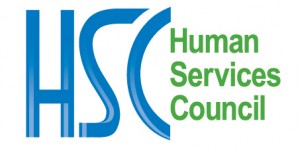

The relationship between HSC and UST will allow many more 501(c)(3) organizations to learn how to lower the cost of unemployment at their organization by opting out of the state unemployment insurance tax system and implementing best practices. By paying only the dollar-for-dollar cost of unemployment benefits awarded to former employees, organizations that join UST lower their average claims cost to just $2,287 per claim versus the national average of $5,174 per claim.
“Not only will this new partnership result in potential savings for HSC members,” explained Judy Zangwill, Executive Director of Sunnyside Community Services, who sits on the Board of Directors at HSC and is also a UST Trustee, “but there are also additional benefits in terms of gaining access to the ThinkHR hotline and training, and getting 100% representation at all unemployment claim hearings when an organization joins UST.”
“As a Trust member I knew that UST helps nonprofit organizations from the time an employee initially files for unemployment benefits to the end of the claims experience. But as a UST Trustee I have even greater insight into the program and can see that it’s not only efficient for members, it’s also a well-run organization that provides increased value for its 80 Affinity Partners.”
About the Human Services Council: HSC strengthens the not-for-profit human services sector’s ability to improve the lives of New Yorkers in need through networking, advocacy, research, media education and by acting collectively to establish greater balance between organizations and government. As a membership association HSC has long been at the forefront of enacting positive changes to outdated, bureaucratic governmental systems that human services providers must navigate to help those in need. In service to their members, HSC seeks to reduce regulatory burdens while strengthening accountability—with the overall goal of producing better outcomes for clients. Their efforts enhance public recognition of the sector, improve its financial stability, and have a long-term positive impact on the well-being of New Yorkers in need. For more information, visit humanservicescouncil.org.
About UST: Founded by nonprofits, for nonprofits, UST is the largest unemployment trust in the nation, providing nonprofit organizations with 10 or more employees a safe, cost-effective alternative to paying state unemployment taxes. UST has partnered with 80 state and national nonprofit-based associations to teach their members about their unemployment insurance alternatives. Visit www.ChooseUST.org to learn more.

Every day is Earth Day for nonprofit members of the Unemployment Services Trust (UST) who are reducing their paper trail. More than 91% of the organizations that participate in the UST program now handle the details and filing of their unemployment claims online. 68% of UST members are participating in the online unemployment claim dashboard that allows them to view claims detail related to their organization and process information requests from the state. And an additional 23% of UST members have elected secure email channels as their method of claims response, further eliminating paper waste and increasing the speed of communication.
“This green initiative is our small way of contributing toward reducing our carbon footprint, and also making life easier for our nonprofit members,” says Adam Thorn, UST’s Director of Operations.
Thorn explains, “Last year the federal government mandated that state penalties should be imposed if an employer does not respond in a timely manner to the state’s request for information on an unemployment claim. The response window is often a week or less, so being able to e-file claims information helps mitigate the risk of non-compliance and helps us be a more eco-friendly program. It’s a win-win.”
About UST: Founded by nonprofits, for nonprofits, UST is the largest unemployment trust in the nation, providing nonprofit organizations with 10 or more employees a safe, cost-effective alternative to paying state unemployment taxes. UST has partnered with 80 state and national nonprofit-based associations to teach their members about their unemployment insurance alternatives. Visit www.ChooseUST.org to learn more.

Last year the Unemployment Services Trust (UST) identified $3,532,485.26 in unemployment tax savings opportunities for more than 200 nonprofits that requested a Savings Evaluation. Additionally, UST found $1.7 million in state errors that were credited back to current participants in the UST program after state charges were carefully audited by the claims administrator.
Based on research conducted by the UST Division of Nonprofit Research last year, 1 in 4 nonprofits is unaware of the legislation that allows 501(c)(3)s to opt out of paying state unemployment taxes and instead directly reimburse the state for the dollar-for-dollar cost of benefits paid to their former employees. UST helps nonprofits determine if this alternative will save them money by analyzing their past few years of unemployment claims. Savings can be as much as 60 percent.
“This year our goal is to find more than $7 million in potential savings for nonprofits that ask us to compare UST to their state unemployment tax rate or current supported reimbursing program. Too many organizations are overpaying for their unemployment costs, and we hope to help change that by putting more unrestricted funding back into their budgets when they take advantage of the UST Program.”
For most organizations that join UST, the savings add up quickly. Steve Lepinski, Executive Director of the Washburn Center for Children in Minneapolis and a long-time UST Trustee, said, “The savings generated by UST are like a large foundation has provided millions of dollars to nonprofits across the country.”
His organization estimates that it has saved more than $100,000 on unemployment costs since joining the UST program.
About UST: Founded by nonprofits, for nonprofits, UST is the largest unemployment trust in the nation, providing nonprofit organizations with 10 or more employees a safe, cost-effective alternative to paying state unemployment taxes. UST has partnered with 80 state and national nonprofit-based associations to teach their members about their unemployment insurance alternatives.

The South Central Behavioral Health Network (SCBHN) is made up of 39 mental health and substance abuse programs that are funded by the Connecticut Department of Mental Health and Addiction Services. Focusing on programs that benefit the homeless and addicted populations served by member agencies, SCBHN runs multiple programs that offer addiction counseling and support, job training, and grants for consumer-run projects.
It also operates a very successful program which allows homeless people to move into sober living houses and provides them with case managers.
Each year, the SCBHN houses more than 130 people, and their programs focus on helping people successfully stand on their own two feet. Believing that those who have already experienced the success of conquering addiction and homelessness provide the best examples to those still struggling, SCBHN provides those connections and helps make sure that peer counselors are always available.
A very unique program, SCBHN began as a membership organization for the substance abuse and mental health organizations in the area surrounding New Haven, CT. Now providing direct services to clients of their membership agencies, SCBHN faces a challenge because they have committed themselves to hiring peers to help those they serve. For them, this means that they have committed to hiring two part-time peers for each position, instead of one full-time entry level employee who had never experienced the hardships of homelessness, substance abuse, or mental health concerns. In the last few years, SCBHN has been “hurt around the edges” as donors for their homeless programs dropped out, which forced them to cut back on the number of people they can serve, even as the population grew.
Needing to save money and feeling that self-insuring is far too risky for the majority of nonprofits, SCBHN joined UST and was able to see an immediate decrease in their annual rates.
“What’s the downside of joining UST?” asked Executive Director Edward Mattison. “I certainly confess that I didn’t pay any attention to unemployment before it became important, but the Trust is less expensive than staying with the state and it’s far less risky than trying to self- insure.”
Mattison’s sentiment proved to be extremely true when SCBHN was forced to dismiss an employee who clients alleged was stealing money from them. After dismissal, the employee filed for unemployment benefits claiming she deserved them for her work at the agency, but SCBHN felt that she had harmed clients and should not receive benefits. “The claims staff has [always] been very helpful for us in prepping us for claims interviews and hearings,” said Mattison.
Solution
Working with their claim monitor and hearing representative to figure out how to best approach the situation, what documentation to provide for the hearing, and who should be interviewed, SCBHN was able to win the claim early on.
“I’m not a person who wants to deny people their rights, but the idea that someone who was allegedly stealing from clients should receive benefits made me very angry,” said Mattison.
Summary
Looking to save on operational expenses, SCBHN learned about UST and the benefits of joining a Trust. Being offered substantial savings which allowed them to put more money back into their homeless programs, SCBHN finds UST to be important to their mission because, in part, they are protected from high state rates and can get help in defending themselves against fraudulent or inappropriate unemployment claims.
In the case of the fraudulent claim, claims representatives were able to help SCBHN collect all the necessary information for the unemployment hearing they had requested. Organizing statements, testimony, and the evidence, their representative was able to help SCBHN successfully defend themselves against the claim and save their homeless clients from being offered fewer services. UST’s claims administrator then went on to help SCBHN set up stronger documentation systems to prevent any future issues with employees who harm clients.

UST maintains a secure site. This means that information we obtain from you in the process of enrolling is protected and cannot be viewed by others. Information about your agency is provided to our various service providers once you enroll in UST for the purpose of providing you with the best possible service. Your information will never be sold or rented to other entities that are not affiliated with UST. Agencies that are actively enrolled in UST are listed for review by other agencies, UST’s sponsors and potential participants, but no information specific to your agency can be reviewed by anyone not affiliated with UST and not otherwise engaged in providing services to you except as required by law or valid legal process.
Your use of this site and the provision of basic information constitute your consent for UST to use the information supplied.
UST may collect generic information about overall website traffic, and use other analytical information and tools to help us improve our website and provide the best possible information and service. As you browse UST’s website, cookies may also be placed on your computer so that we can better understand what information our visitors are most interested in, and to help direct you to other relevant information. These cookies do not collect personal information such as your name, email, postal address or phone number. To opt out of some of these cookies, click here. If you are a Twitter user, and prefer not to have Twitter ad content tailored to you, learn more here.
Further, our website may contain links to other sites. Anytime you connect to another website, their respective privacy policy will apply and UST is not responsible for the privacy practices of others.
This Privacy Policy and the Terms of Use for our site is subject to change.
UST maintains a secure site. This means that information we obtain from you in the process of enrolling is protected and cannot be viewed by others. Information about your agency is provided to our various service providers once you enroll in UST for the purpose of providing you with the best possible service. Your information will never be sold or rented to other entities that are not affiliated with UST. Agencies that are actively enrolled in UST are listed for review by other agencies, UST’s sponsors and potential participants, but no information specific to your agency can be reviewed by anyone not affiliated with UST and not otherwise engaged in providing services to you except as required by law or valid legal process.
Your use of this site and the provision of basic information constitute your consent for UST to use the information supplied.
UST may collect generic information about overall website traffic, and use other analytical information and tools to help us improve our website and provide the best possible information and service. As you browse UST’s website, cookies may also be placed on your computer so that we can better understand what information our visitors are most interested in, and to help direct you to other relevant information. These cookies do not collect personal information such as your name, email, postal address or phone number. To opt out of some of these cookies, click here. If you are a Twitter user, and prefer not to have Twitter ad content tailored to you, learn more here.
Further, our website may contain links to other sites. Anytime you connect to another website, their respective privacy policy will apply and UST is not responsible for the privacy practices of others.
This Privacy Policy and the Terms of Use for our site is subject to change.
An analysis by UWC- Strategic Services on Unemployment & Workers’ Compensation reveals that a number of states have state UI trust funds that are so insolvent they are unlikely to recover before the next recession. For employers in these states (listed below) it can be expected that state and/or FUTA tax rates will continue to rise with longer term restrictions being imposed on benefit increases alongside enhanced integrity efforts.
While some states have elected not to maintain a large trust fund balance and are relying on “just in time” supplemental funds to assure their solvency, many are using bonds to supplement UI taxes and remain strained.
States not meeting the 0.5 Average High Cost Multiple threshold as of December 31, 2013 include:
Alabama, Arkansas, Arizona, California, Connecticut, Delaware, Florida, Georgia, Illinois, Indiana, Kansas, Kentucky, Massachusetts, Missouri, North Carolina, New Jersey, Nevada, New York, Ohio, Pennsylvania, Rhode Island, South Carolina, Texas, Virgin Islands, Virginia, Wisconsin, West Virginia
States that do not meet the DOL recommended levels but have average High Cost Multiples of 0.5 or more include:
Colorado, DC, Hawaii, Maryland, Maine, Michigan, Minnesota, Puerto Rico, Vermont
States that have solvent UI trust fund balances according to the US DOL 1.0 Average High Cost Multiple formula include:
Alaska, Iowa, Idaho, Louisiana, Mississippi, Montana, North Dakota, Nebraska, New Hampshire, Oklahoma, Oregon, South Dakota, Utah, Washington, Wyoming